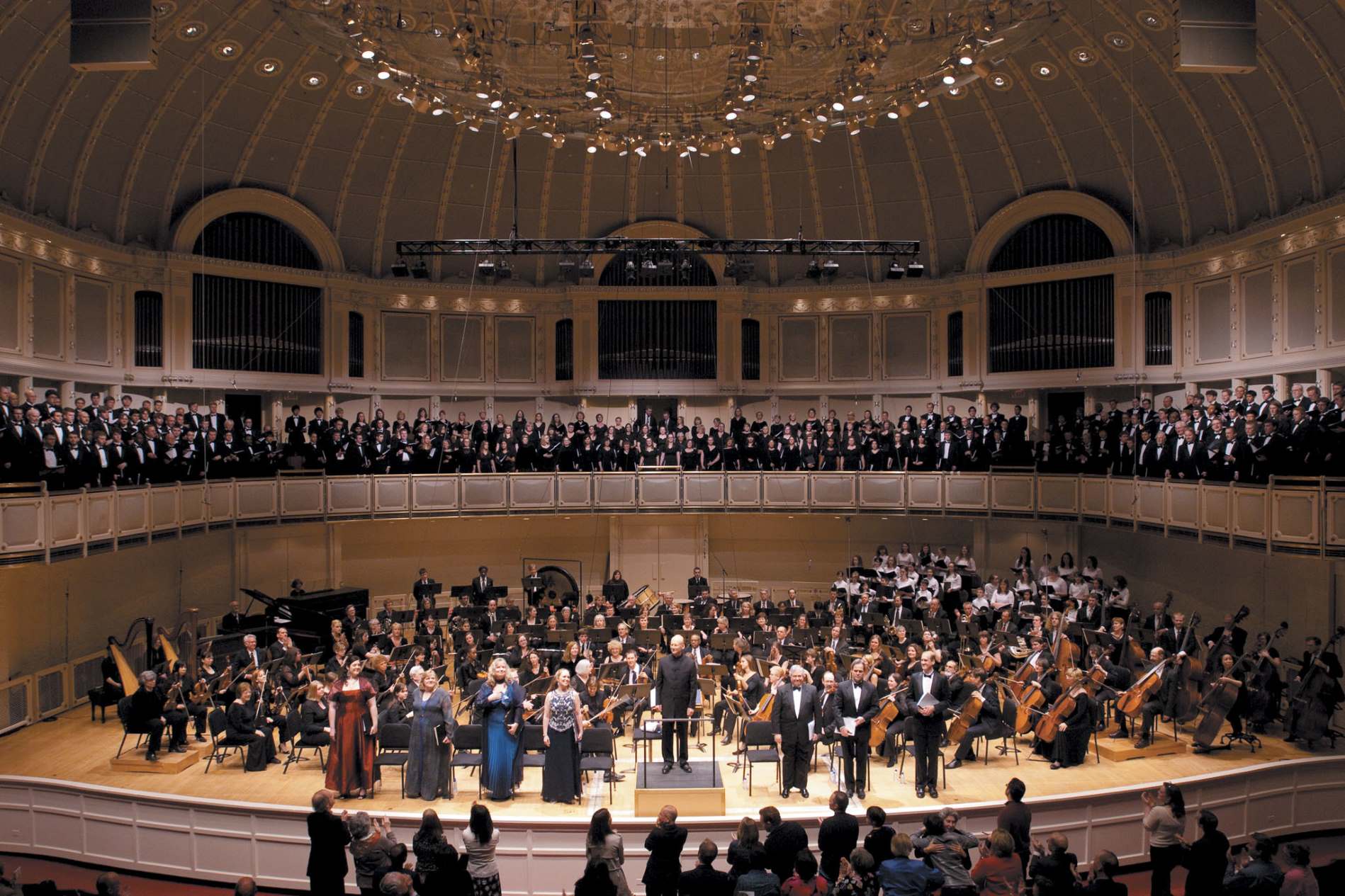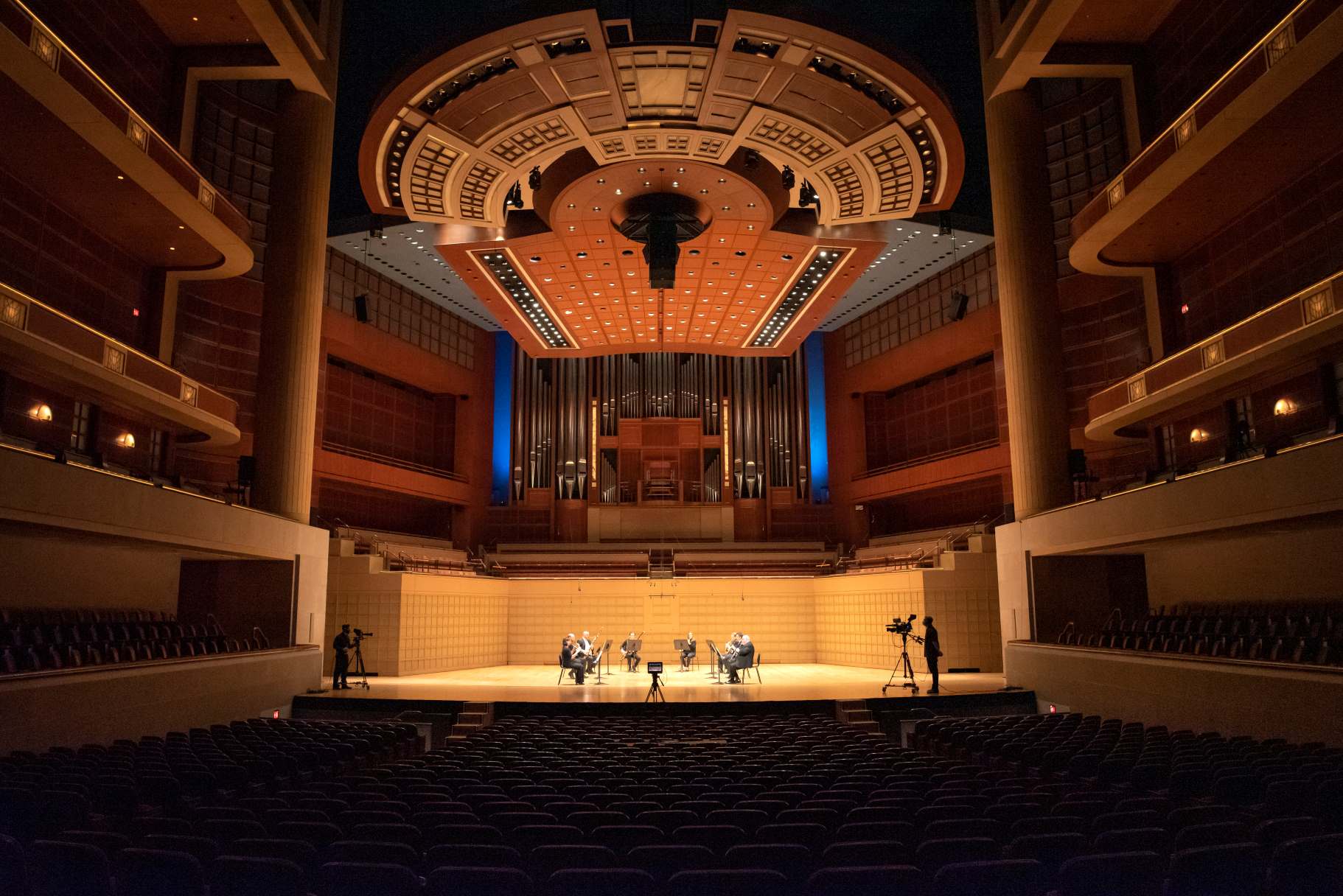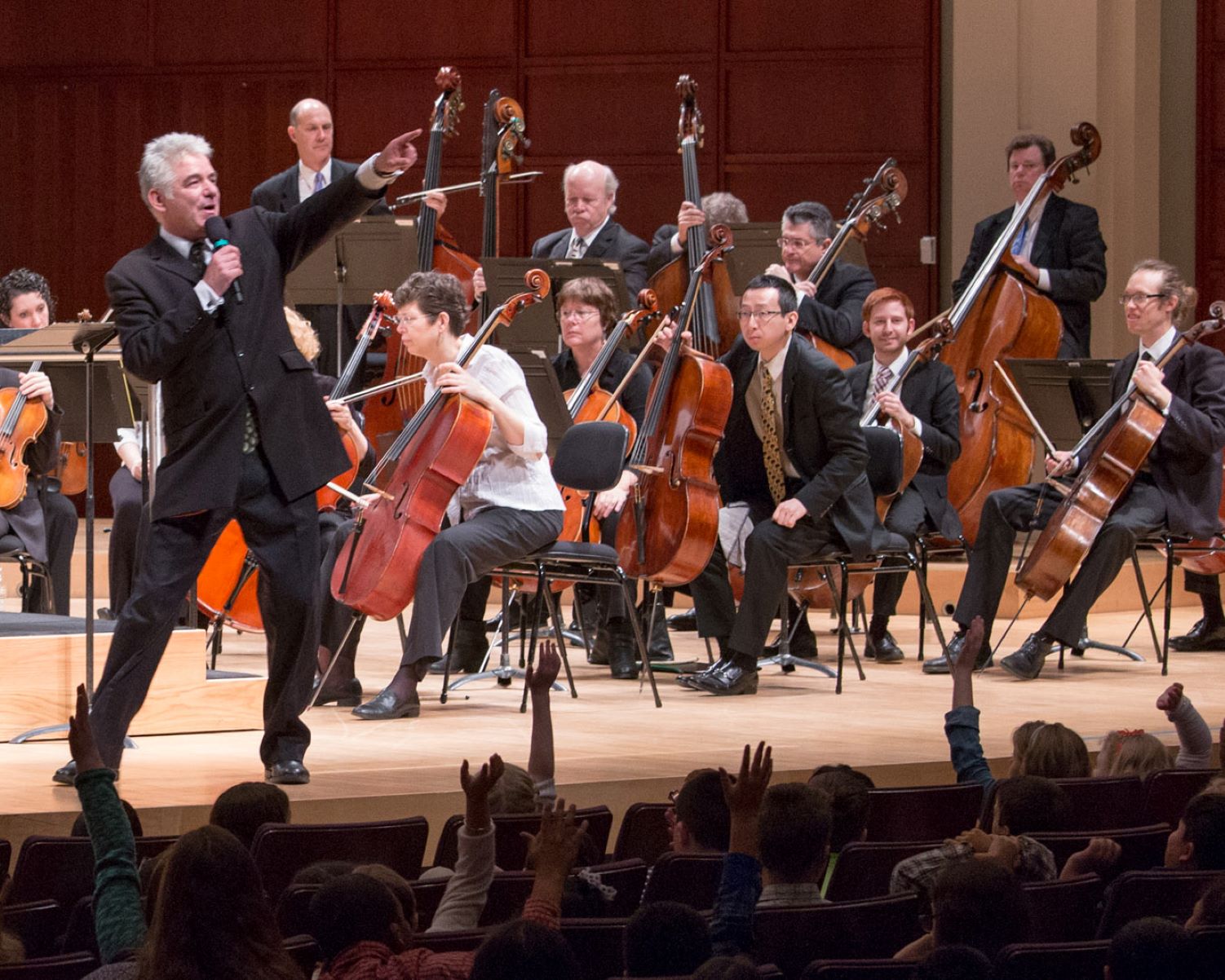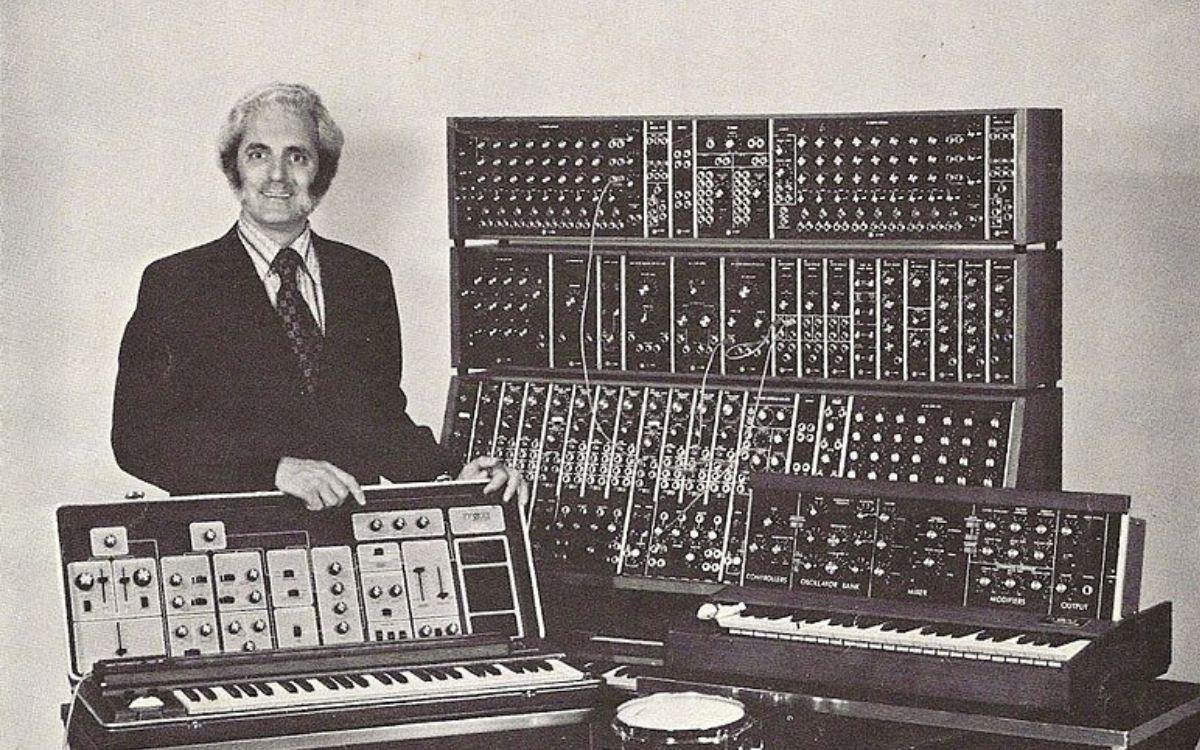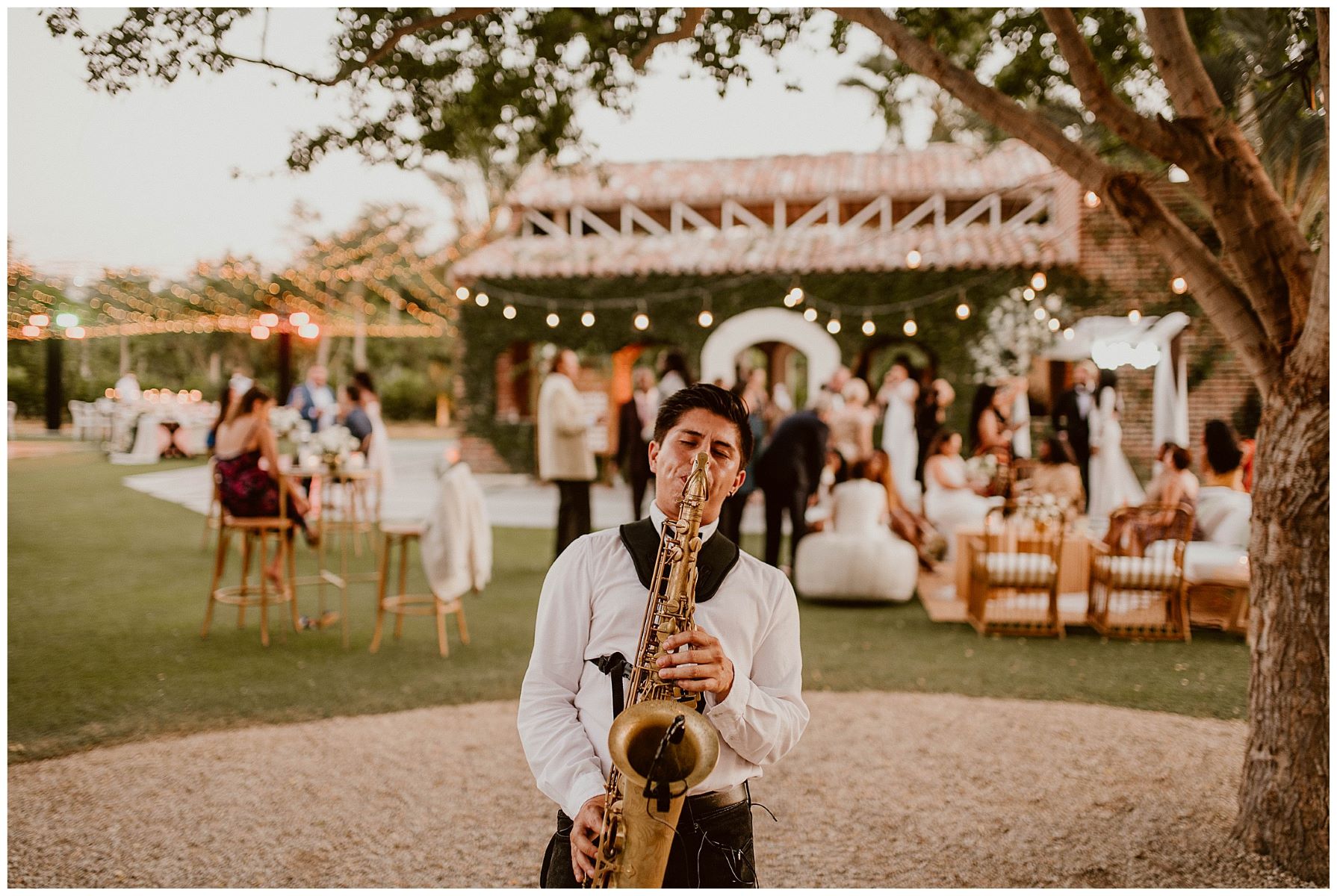Home>Production & Technology>Musician>How To Make It As An Independent Musician


Musician
How To Make It As An Independent Musician
Published: January 27, 2024
Learn the secrets to success as an independent musician and take your music career to the next level. Discover proven strategies to build a strong fanbase and increase your visibility in a competitive industry.
(Many of the links in this article redirect to a specific reviewed product. Your purchase of these products through affiliate links helps to generate commission for AudioLover.com, at no extra cost. Learn more)
Table of Contents
- Introduction
- Finding Your Unique Musical Style
- Creating Original Music
- Setting Up Your Home Recording Studio
- Building Your Online Presence
- Promoting Your Music on Social Media
- Collaborating with Other Musicians
- Booking and Performing Live Gigs
- Networking and Building Relationships in the Music Industry
- Managing Your Finances as an Independent Musician
- Staying Motivated and Overcoming Challenges
- Conclusion
Introduction
Welcome to the world of independent musicianship, where artists have the freedom to create and share their music on their own terms. Being an independent musician offers a unique opportunity to express yourself creatively, connect with your audience directly, and carve your own path in the music industry.
However, this path can be challenging and competitive. As an independent musician, you need to wear multiple hats – from songwriter to composer, performer to promoter. But fear not, with the right knowledge, skills, and strategies, you can navigate the music industry landscape and make a name for yourself.
In this comprehensive guide, we will explore the essential steps and tips to help you thrive as an independent musician. From finding your unique musical style to building your online presence and networking in the industry, we’ve got you covered.
So, let’s dive in and discover the key factors that will help you succeed as an independent musician.
Finding Your Unique Musical Style
One of the first steps in becoming a successful independent musician is finding your unique musical style. Your musical style is what sets you apart from other artists and helps you connect with your audience on a deeper level.
Start by exploring different genres and styles of music. Listen to a wide range of artists and pay attention to the elements that resonate with you the most. Take note of the melodies, rhythms, instrumentation, and lyrical themes that captivate your interest.
Experiment with different instruments and vocal techniques to discover your strengths and preferences. Don’t be afraid to push yourself out of your comfort zone and try new things. This process of exploration and experimentation will help you define your sound and develop your musical identity.
Once you have a basic understanding of different genres and styles, it’s time to infuse your own unique perspective. Draw inspiration from your personal experiences, emotions, and beliefs. Your music should reflect who you are as an artist and what you want to say to the world.
Remember, finding your unique musical style is an ongoing journey. It takes time and exploration to truly develop your own sound. Don’t be discouraged if it doesn’t happen overnight. Embrace the process and continue to evolve as an artist.
Ultimately, your goal is to create music that is authentic and resonates with your audience. Your unique musical style will attract the right listeners who connect with your music on a deep level. So, embrace your individuality and let it shine through your music.
Creating Original Music
As an independent musician, creating original music is the heart and soul of your artistic journey. It’s what sets you apart from cover artists and allows you to showcase your unique talent and creativity. Here are some steps to help you create original music:
- Tap into your inspiration: Find inspiration from various sources such as personal experiences, emotions, books, movies, and current events. Allow yourself to be open to the world around you and let your creativity flow.
- Start with a melody or riff: Begin by experimenting with different melodies or guitar riffs that resonate with you. This will serve as the foundation of your song.
- Build the structure: Develop the structure of your song by creating verses, choruses, bridges, and instrumental sections. Focus on creating a cohesive flow that captivates the listener from start to finish.
- Write meaningful lyrics: Craft compelling and meaningful lyrics that reflect your personal experiences or explore universal themes. Connect with your audience by conveying emotions and messages they can relate to.
- Experiment with instrumentation: Explore different instruments and sounds to add depth and texture to your music. Don’t be afraid to try unconventional combinations or incorporate electronic elements if it aligns with your artistic vision.
- Record and produce: Invest in a home recording setup or utilize a professional recording studio to capture your music. Experiment with production techniques to enhance the overall sound and bring your vision to life.
- Collaborate with others: Consider collaborating with other musicians or songwriters to bring fresh perspectives and ideas into your music. This can lead to exciting collaborations and help expand your creative boundaries.
- Refine and iterate: Continuously refine your music by seeking feedback from trusted sources. Embrace constructive criticism and be willing to make changes to improve your songs.
Remember, creating original music is a journey of self-expression. Stay true to your artistic vision and have confidence in your unique voice. With time and dedication, your original music will resonate with audiences and help you stand out in the music industry.
Setting Up Your Home Recording Studio
Having a home recording studio is essential for independent musicians who want to create professional-quality recordings without breaking the bank. Here are the key steps to setting up your home recording studio:
- Choose a suitable space: Find a quiet and acoustically favorable space in your home where you can set up your recording studio. Consider the size of the room and how it will accommodate your equipment and provide a comfortable working environment.
- Invest in essential equipment: Start with the basics, such as a computer, audio interface, studio monitors, and microphones. Research and compare different options based on your budget and specific recording needs.
- Ensure quality soundproofing: Soundproofing is crucial to minimize external noises and echoes in your recordings. Consider adding acoustic panels, bass traps, and soundproof curtains to improve the overall sound quality in your studio.
- Set up your recording software: Choose a digital audio workstation (DAW) that suits your needs and preferences. Popular options include Pro Tools, Logic Pro, and Ableton Live. Familiarize yourself with the software and its features to optimize your recording process.
- Position your equipment correctly: Proper placement of your studio monitors and microphones is essential to capture accurate sound. Research optimal positioning techniques to ensure a balanced and clear audio representation.
- Create a comfortable and inspiring workspace: Consider the ergonomics of your studio setup. Invest in a comfortable chair, proper lighting, and a clean and organized workspace. Surround yourself with creative inspiration like posters, artwork, or musical instruments to enhance your creativity.
- Learn basic recording techniques: Educate yourself on fundamental recording techniques such as mic placement, gain staging, and using effects. This knowledge will help you achieve professional results in your recordings.
- Experiment and refine: Don’t be afraid to experiment with different recording techniques and settings to find the sound that best represents your music. Continuously refine and learn from your recording sessions to improve your skills and achieve the desired results.
Setting up your home recording studio may require some initial investment, but it provides you with the convenience and flexibility to create music on your own terms. With careful planning and the right equipment, your home studio can become the creative hub where your musical ideas come to life.
Building Your Online Presence
In today’s digital age, building a strong online presence is crucial for independent musicians to reach a wider audience and connect with their fans. Here are the key steps to build your online presence:
- Create a professional website: Your website serves as the central hub for your online presence. Make sure it has a clean and intuitive design, showcases your music, provides a bio, and includes links to your social media platforms and upcoming events.
- Utilize social media platforms: Establish a presence on popular social media platforms such as Facebook, Instagram, and Twitter. Regularly post engaging content, share updates about your music, interact with your fans, and collaborate with other musicians.
- Upload your music to streaming platforms: Distribute your music on popular streaming platforms like Spotify, Apple Music, and YouTube. This allows your music to reach a larger audience and helps you gain new fans.
- Create engaging content: Besides sharing your music, create other types of content to engage your audience. This can include behind-the-scenes videos, live performances, music tutorials, or vlogs. The more diverse and interesting your content, the more likely you are to attract and retain fans.
- Engage with your fans: Interact with your fans regularly by responding to comments, messages, and inquiries. Show genuine appreciation for their support and create a sense of community around your music.
- Collaborate with influencers: Seek collaborations with popular social media influencers, bloggers, or YouTubers who align with your musical style. This can help expose your music to a wider audience and generate buzz around your work.
- Offer merchandise and exclusives: Create merchandise such as t-shirts, posters, or limited edition releases, and offer them for sale on your website or at live shows. Additionally, consider offering exclusive content or early access to new releases as a way to reward your dedicated fans.
- Update your online presence regularly: Consistency is key. Regularly update your website, social media accounts, and streaming platforms with fresh content, upcoming events, and news about your music. This shows your fans that you are actively engaged and helps you stay relevant in their minds.
Remember, building your online presence takes time and effort. Be patient and persistent, and don’t be afraid to adapt your strategies based on what works best for your audience. Building a strong online presence will not only help you reach new fans but also establish a direct and meaningful connection with your audience.
Promoting Your Music on Social Media
Social media platforms provide powerful tools for independent musicians to promote their music and engage with their audience. Here are some effective strategies to promote your music on social media:
- Define your target audience: Identify the demographics and interests of your target audience. This will help you tailor your content and promotional efforts to reach the right people.
- Create compelling content: Share high-quality images, videos, and snippets of your music that capture the attention of your followers. Be creative and authentic in your content to stand out from the crowd.
- Engage with your followers: Respond to comments, messages, and tags from your fans. Show genuine appreciation for their support and use social media as a way to build a loyal fan base.
- Utilize hashtags: Research and use relevant hashtags in your social media posts to increase your visibility and reach. This allows users who are interested in similar content to discover your music.
- Collaborate with other musicians and influencers: Connect and collaborate with other musicians and influencers in your genre. This can help expand your audience reach and expose your music to new fans.
- Promote your upcoming releases and events: Use social media to build anticipation for your upcoming releases, music videos, or live shows. Create intriguing teaser posts and behind-the-scenes content to generate excitement among your followers.
- Run targeted advertising campaigns: Utilize the targeted advertising options available on social media platforms to reach specific demographics or locations. This can help you attract new fans and boost your visibility.
- Share user-generated content: Encourage your fans to create and share content related to your music. This could include covers, dance videos, or fan art. Repost and give credit to these fans to foster a deeper connection and show appreciation for their support.
- Host contests and giveaways: Engage your followers by hosting contests or giveaways. This not only generates excitement but also encourages them to actively participate and share your music with their own networks.
- Analyze and adapt your strategies: Use social media analytics tools to understand which posts and promotions generate the most engagement and reach. Adjust your strategies accordingly to optimize your promotional efforts.
Remember, social media promotion requires consistency and active engagement. Regularly update your profiles, respond to comments and messages, and experiment with different content types and promotional strategies. Building a strong social media presence will allow you to reach a wider audience and connect with your fans on a deeper level.
Collaborating with Other Musicians
Collaborating with other musicians can be a rewarding and creative way to expand your musical horizons. It allows you to combine your unique talents and perspectives to create something new and exciting. Here are some tips for successful collaborations with other musicians:
- Find the right collaborators: Look for musicians whose musical style and strengths complement your own. Seek out artists who share your passion and dedication, and with whom you have good chemistry.
- Define your goals and expectations: Clearly communicate your goals, expectations, and artistic vision to your collaborators. Discuss the intended outcome of the collaboration and ensure everyone is on the same page.
- Be open-minded and adaptable: Embrace different perspectives and be willing to explore new musical ideas. Collaboration is about merging creativity and individuality, so be open to experimenting and taking risks.
- Establish effective communication: Regularly communicate with your collaborators to ensure a smooth and productive workflow. Utilize tools such as video calls or project management platforms to facilitate collaboration, especially if you are working remotely.
- Give and receive constructive feedback: Provide constructive feedback to your collaborators and be open to receiving feedback in return. This helps improve the quality of the collaboration and strengthens the bond between artists.
- Share responsibilities: Divide responsibilities and tasks equitably among collaborators. This ensures that everyone feels invested in the project and contributes to its success.
- Respect each other’s creative input: Appreciate and value the unique contributions of each collaborator. Respect their creative input and give credit where it is due. Collaboration thrives on mutual respect and support.
- Document and protect your work: Keep records of your collaborative work, including songwriting credits, agreements, and any financial arrangements. This ensures clarity and protects the interests of all parties involved.
- Promote and support each other: Once the collaboration is complete, actively promote and support each other’s work. Share the final product on your respective platforms, collaborate on social media campaigns, and even consider performing together in live shows.
- Learn from the experience: Reflect on the collaboration and identify lessons learned and areas for improvement. Each collaboration offers a unique opportunity for growth and learning as an artist.
Collaborating with other musicians can lead to exciting and inspiring musical endeavors. It allows you to expand your artistic boundaries, tap into new ideas, and create music that is greater than the sum of its parts. Embrace collaboration as a way to connect and grow with fellow musicians, and watch your creativity soar to new heights.
Booking and Performing Live Gigs
One of the most thrilling aspects of being a musician is performing live in front of an audience. It not only allows you to showcase your talent but also creates a unique connection between you and your fans. Here are some key steps to booking and performing live gigs:
- Build a solid repertoire: Before booking gigs, ensure you have a solid repertoire of songs that you feel confident performing live. Create a setlist that showcases your best work and includes a mix of originals and covers, if desired.
- Research and approach venues: Identify local venues that align with your musical style and target audience. Research their booking process and requirements, and reach out to them with a professional and compelling press kit that includes your bio, music samples, and performance videos.
- Network and collaborate with other musicians: Connect with other musicians in your local music scene and explore opportunities to collaborate on shows. This can help expand your audience reach and increase the likelihood of booking gigs in new venues.
- Create a digital presence for booking: Develop a professional website or social media page dedicated to booking inquiries. Include detailed information about your music, past performances, and contact details for booking inquiries.
- Prepare a captivating live show: Craft a memorable and engaging live performance by incorporating stage presence, audience interaction, and dynamic arrangements. Rehearse thoroughly to ensure a polished and professional performance.
- Promote your upcoming shows: Utilize social media and your online presence to promote your upcoming shows. Create engaging content, share sneak peeks, and encourage your fans to spread the word about your performances.
- Collaborate with local promoters and booking agents: Reach out to local promoters and booking agents who can help secure gigs in larger venues or support slots for established artists. Maintain strong relationships with these professionals to increase your chances of securing future gigs.
- Engage with your audience: During your live performances, interact with your audience, and create a memorable experience for them. Encourage crowd participation, share stories behind your songs, and express genuine appreciation for their support.
- Collect feedback and learn from each gig: After each gig, take time to reflect on your performance. Seek feedback from audience members, fellow musicians, or venue staff to identify areas for improvement and enhance your live shows.
- Expand your gigging opportunities: As you gain experience and momentum, look for opportunities to perform outside your local area. This could include regional tours, festivals, or even international gigs. Expand your horizons and explore new territories.
Booking and performing live gigs require persistence, professionalism, and a passion for connecting with your audience. Embrace the opportunity to share your music with the world and leave a lasting impression on those who hear you perform live.
Networking and Building Relationships in the Music Industry
Networking and building relationships in the music industry is essential for independent musicians who want to expand their reach, collaborate with other professionals, and gain valuable insights and opportunities. Here are some key steps to effectively network and build relationships:
- Attend industry events: Attend music conferences, festivals, and workshops to connect with other musicians, industry professionals, and influential figures in the music industry. These events offer valuable networking opportunities and a chance to learn from experienced individuals.
- Join online music communities: Engage with online music communities, forums, and social media groups where musicians and industry professionals congregate. Participate in discussions, share your work, and connect with like-minded individuals.
- Reach out to industry contacts: Research and identify key industry contacts such as music producers, managers, booking agents, and A&R representatives. Craft personalized and professional emails or messages to introduce yourself, share your music, and express your interest in collaborating or seeking guidance.
- Support other musicians: Show support for fellow musicians by attending their gigs, sharing their work on social media, and collaborating on projects. Building a network of supportive musicians can lead to valuable alliances and opportunities.
- Be professional and reliable: Maintain a professional and respectful demeanor in all your interactions. Be reliable, punctual, and communicative in your engagements and collaborations. This builds trust and enhances your reputation in the industry.
- Cultivate genuine relationships: Don’t approach networking with a solely self-serving mindset. Instead, focus on building authentic and meaningful connections. Take an interest in others’ work, offer support, and be generous with your knowledge and resources.
- Collaborate with other professionals: Seek collaborative opportunities with musicians, producers, videographers, and other creatives in the industry. Collaborations not only broaden your artistic horizons but also introduce you to new audiences and supporters.
- Stay up-to-date with industry trends: Keep a finger on the pulse of the music industry by staying informed about emerging trends, changes in the market, and industry news. This knowledge facilitates meaningful conversations and positions you as an informed and engaged artist.
- Utilize social media for networking: Leverage social media platforms to connect with industry professionals, share your work, and engage in conversations. Follow influential figures, participate in relevant hashtags, and showcase your professionalism and talent through your online presence.
- Attend local music industry events: Engage in your local music community by attending open mic nights, showcases, and industry panels. Making connections within your local scene can lead to exciting opportunities and partnerships.
Building a strong network and nurturing relationships within the music industry takes time and effort. Stay proactive, genuine, and open to new connections. Remember, the music industry is built on relationships, and the connections you make can help propel your career to new heights.
Managing Your Finances as an Independent Musician
Managing your finances as an independent musician is crucial for sustaining your career and ensuring long-term success. Here are some key steps to effectively manage your finances:
- Create a budget: Start by assessing your income and expenses. Create a realistic and comprehensive budget that takes into account your regular expenses, such as equipment maintenance, recording costs, promotion, and day-to-day living expenses.
- Separate personal and music finances: Open a separate bank account for your music-related income and expenses. This makes it easier to track your finances and ensures that your personal and business finances remain separate for tax and accounting purposes.
- Track your income and expenses: Keep detailed records of all your income and expenses. Utilize financial software, spreadsheets, or dedicated apps to track payments, invoices, and receipts. Regularly review and reconcile your finances to stay organized.
- Maximize your revenue streams: Explore multiple revenue streams in addition to music sales, such as live performances, licensing, merchandise sales, and crowdfunding. Diversifying your income sources can provide stability and increase your overall revenue.
- Monitor and control your expenses: Keep a close eye on your expenses and look for opportunities to cut costs without compromising the quality of your work. Negotiate better deals with service providers, seek affordable recording options, and be conscious of unnecessary expenses.
- Save for the future: Set aside a portion of your income for savings and emergencies. Having a financial safety net allows you to navigate unexpected expenses or lean periods in your career without financial stress.
- Understand taxation and royalties: Educate yourself on the tax laws and royalty structures relevant to your country or region. Seek professional advice if needed to ensure compliance with tax obligations and optimize your royalty earnings.
- Invest in your business: Allocate a portion of your income towards investing in your music career. This may include upgrading your equipment, investing in marketing and promotion, or seeking professional development opportunities.
- Consult with a financial professional: Consider working with a dedicated music accountant or financial advisor who understands the unique financial challenges of the music industry. They can provide guidance, help you navigate complex financial matters, and offer tailored advice for your specific situation.
- Continuously educate yourself: Stay informed about financial management best practices for musicians. Read books, attend workshops or webinars, and seek out resources and educational content related to music finance management.
Managing your finances as an independent musician requires discipline and an organized approach. By taking control of your finances, you can make informed decisions, sustain your career, and lay the foundation for long-term financial stability and success.
Staying Motivated and Overcoming Challenges
The journey of an independent musician is filled with ups and downs, successes and challenges. Staying motivated and overcoming obstacles is essential for long-term growth and fulfillment. Here are some strategies to help you stay motivated and overcome challenges as a musician:
- Set clear goals: Define specific and achievable goals for your music career. Break them down into smaller milestones to track your progress. Having a clear vision and purpose will keep you motivated and focused on your journey.
- Stay inspired: Seek regular inspiration by listening to a variety of music, attending live concerts, reading books about music, or exploring new genres. Surround yourself with like-minded individuals and engage in conversations that reignite your passion for music.
- Develop a routine: Establish a consistent practice routine to hone your musical skills and maintain discipline. Set aside dedicated time for songwriting, rehearsing, and exploring new musical ideas. A routine helps you stay committed and productive despite challenges you may face.
- Embrace failure as an opportunity to learn: Failure is inevitable, but it’s important to view it as a stepping stone towards growth. Learn from your mistakes, adapt, and keep pushing forward. Every setback brings valuable lessons that can contribute to your development as an artist.
- Surround yourself with a supportive community: Connect with fellow musicians who understand and support your journey. Join local music communities, attend open mic nights, or join online forums to find like-minded individuals who can offer encouragement and advice.
- Celebrate small victories: Acknowledge and celebrate your achievements, no matter how small. Completing a song, performing a successful gig, or receiving positive feedback are all milestones worth celebrating. Recognizing your progress boosts motivation and reminds you of your capabilities.
- Stay positive and practice self-care: Maintain a positive mindset and take care of your physical and mental well-being. Engage in activities that recharge and rejuvenate you, such as exercising, meditating, spending time in nature, or pursuing other hobbies outside of music.
- Seek support when needed: Don’t hesitate to reach out for support when facing challenges. Talk to fellow musicians, mentors, or friends who can provide guidance and encouragement. Sometimes, sharing your struggles with others can lead to fresh perspectives and solutions.
- Continuously evolve and learn: Embrace a growth mindset and commit to lifelong learning. Take classes, workshops, or online courses to acquire new skills or explore new musical techniques. The more you learn and evolve as an artist, the more resilient and adaptable you become.
- Remember your why: Reflect on the reasons why you pursued a career in music in the first place. Reconnect with your passion, purpose, and love for music. Keeping your core motivations at the forefront of your mind will fuel your determination during challenging times.
Staying motivated as an independent musician requires resilience, patience, and a deep love for your craft. Embrace the journey, stay focused on your goals, and remember that challenges are mere stepping stones on the path to success.
Conclusion
Congratulations! You have now gained valuable insights into what it takes to thrive as an independent musician. From finding your unique musical style to building your online presence, promoting your music, and managing your finances, you are equipped with the knowledge and strategies to navigate the ever-evolving music industry.
Remember, success as an independent musician requires a combination of talent, hard work, perseverance, and adaptability. Embrace the journey and enjoy the process of creating, connecting, and sharing your music with the world.
As you embark on your musical journey, stay true to yourself and your creative vision. Find ways to continually challenge yourself, experiment with new ideas, and collaborate with other artists. Never lose sight of your passion and the reasons why you fell in love with music in the first place.
Along the way, you will encounter obstacles and setbacks. Embrace them as opportunities for growth and learning. Stay motivated by setting goals, celebrating small victories, and building a supportive community around you. Remember that every step forward, no matter how small, brings you closer to your dreams.
As the music industry continues to evolve, stay adaptable and open to new possibilities. Keep up with industry trends and technologies, while staying true to your unique artistic voice. Embrace the power of networking, both online and offline, and consistently seek out opportunities to connect with industry professionals and fellow musicians.
Above all, enjoy the journey. Making music as an independent musician is a gift and a privilege. Embrace the joy of creating, performing, and sharing your music with the world. With passion, dedication, and a strong work ethic, your journey as an independent musician can be fulfilling and rewarding.
Now, armed with this comprehensive guide, go out and make your mark in the music industry. The world is waiting to hear your unique sound and experience the magic of your music. Good luck!

